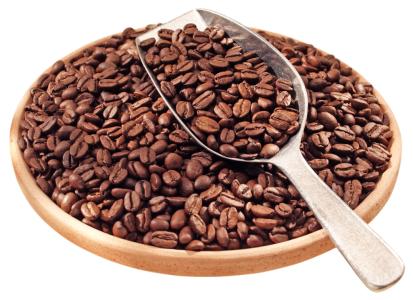How to adjust the thickness scale of the bean mill mazzer bean mill thickness adjustment
How to adjust the thickness scale of the bean mill mazzer bean mill thickness adjustment
To observe the coffee powder, the high-quality coffee powder should be powdered and gravel. If the coffee powder is soft, like flour, it means the powder is fine. On the contrary, if the coffee powder feels tough and rough, it means the powder is too coarse.
Adjustment course of bean grinder
Different bean grinders have different adjustment dials, so you should check the model of the coffee grinder and read the instructions carefully to determine the direction and strength of the dial. In general, if you keep in the habit of checking the settings of the bean grinder, you only need to make very small adjustments. As long as you move the turntable within 3 mm, you can change the thickness of the powder. Although 3 mm is a very small number, the grinding time of the same coffee beans will change by 3-5 seconds.
The significance of adjusting bean grinder
The humidity and storage time of coffee beans are constantly changing, and the wear degree of bean grinder blades has also changed over time, so baristas should adjust the bean grinder regularly to ensure that the ground coffee powder remains perfect.
When the coffee bean enters the grinder, the blade in the grinder will crush the coffee bean into powder. The smaller the distance between the blade and the blade, the smaller the coffee beans will be ground into smaller particles. The finer the grinding particles are, the tighter they are, and the more difficult it is for the water to pass through, thus greatly prolonging the extraction time. On the contrary, if the distance between the blades increases, the ground particles will become rougher, the flow of water will be easier to pass through, and the extraction time will be faster. To take a simple example, like stones and fine sand, water flows much faster through stones than fine sand, because there is more space between the stones for the flow of water to pass quickly. Therefore, the correct grinding is very important, and the particle size directly affects the quality of the extraction.

Important Notice :
前街咖啡 FrontStreet Coffee has moved to new addredd:
FrontStreet Coffee Address: 315,Donghua East Road,GuangZhou
Tel:020 38364473
- Prev

How to set up different flavors of coffee in Yuri coffee machine
How to set up different flavors of coffee in the Yuri coffee machine 1. Prepare a mug. Put a double ESPPERSO in the mug. 3. Then milk and put the right amount of milk into the milk steel! Milk with a nozzle. Remember not to put it too deep! Otherwise, there is no foam, it can not be too shallow, too much foam will be too thick, can not be used. It is better to put it in the 2nd and 3rd place of the nozzle. 4. There is one more thing
- Next

How to evaluate the definition of espresso by scaa
How to evaluate the definition of espresso by scaa 1. The shaping of quality service consciousness and behavior II. Customer service skills 3. Skills for dealing with customer complaints 4. Barista rating Certification Test 1. Generally speaking, the coffee shop produces espresso with a glass of water (room temperature) to clean the mouth so that you can better feel the taste of espresso. two。 Observe the color of oil (cream)
Related
- What is the Philharmonic pressure? How to use Philharmonic pressure to make delicious coffee
- Why does a hand grinder have more fine powder than an electric grinder?
- In addition to the hot mom, what is the difference between the versions of EK43 | ditting and Mahdi ek43?
- What kind of equipment do you need to make coffee by hand? Introduction to novice starter cooking equipment tools
- Espresso needs to be ground how thick and thin scale entry Italian Coffee Machine Bean Grinder investigation and Grinding course
- How much does it cost to open a small private cafe? How much does it cost to learn coffee? How to operate it?
- The difference between the flavor characteristics of hand-brewed coffee and coffee maker is hand-brewed coffee really better than coffee maker? Can I use a coffee machine to make coffee beans by hand?
- The difference between 01 and 02 of hario v60 filter cup what is the difference between 01 and 02 filter cup opening and cooking flavor
- What's the difference between the smart cup and the French kettle? Which is better, the French kettle or the Smart Cup?
- What's the difference between a smart cup and a V60 filter cup? The difference between the taste of smart cup and hand-brewed coffee

